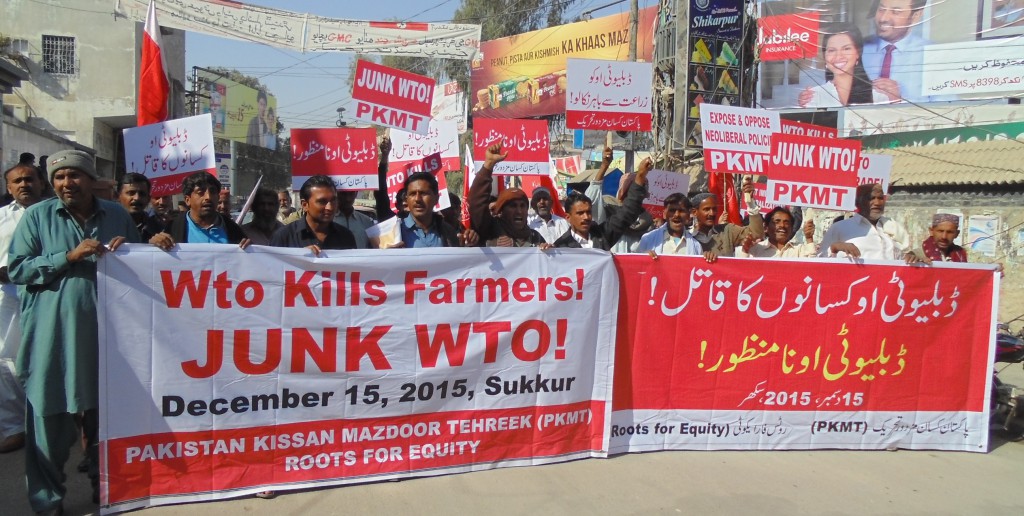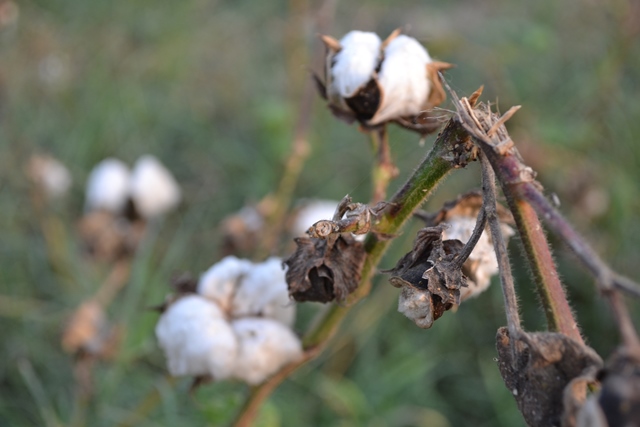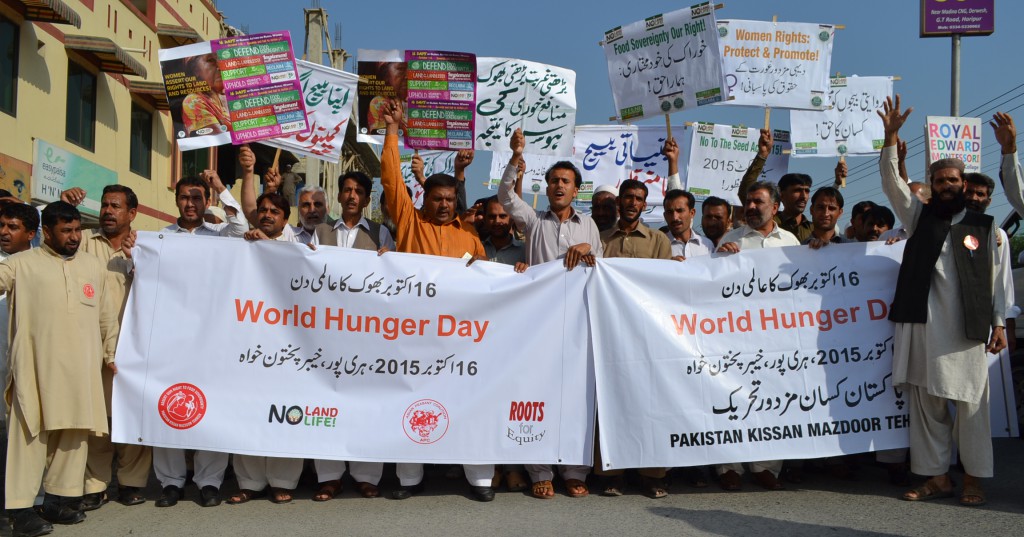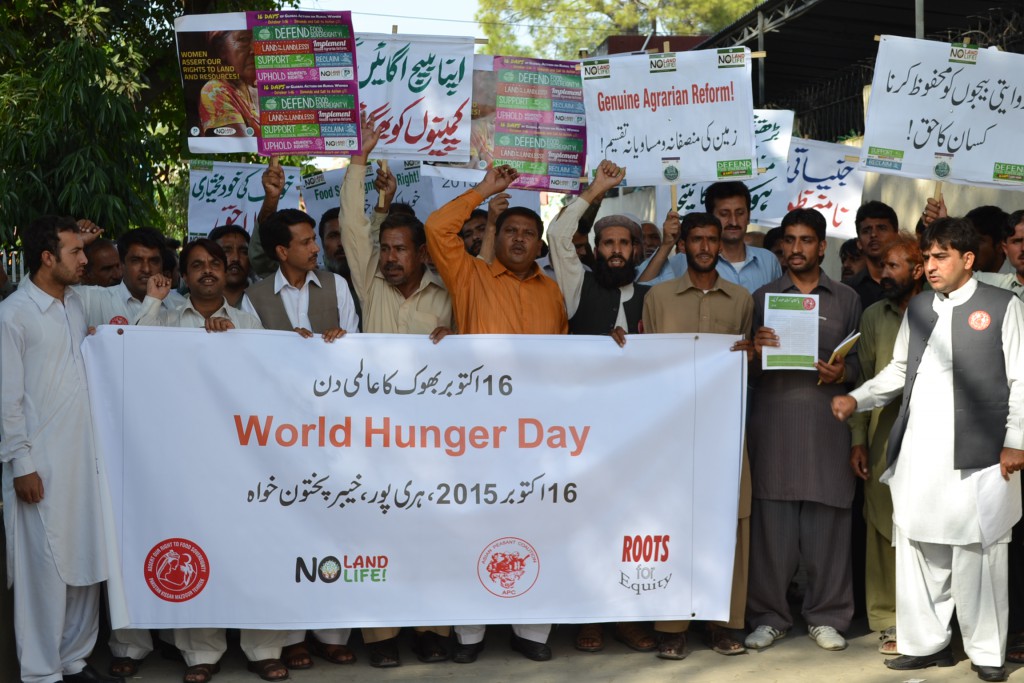Dawn, Business & Finance weekly, December 7th, 2015
ASHFAK BOKHARI
WITH the introduction of the Plant Breeders’ Rights Bill 2015 in the National Assembly on November 27 by the Federal Minister for Inter-Provincial Coordination Riaz Hussain Pirzada, the country is close to meeting its obligations in the seed sector as required by the WTO’s Trips regime.
The Seed Amendment Bill 2014, another related legislation, has already been passed by the lower house and is awaiting a formal nod from the upper house to become a law. The two bills were originally moved in 2010 but were then put on the backburner.
After remaining frozen for four years, one bill, relating to seed business, was revived last year following the formation of the Intellectual Property Organisation (IPO-Pak) as a regulator of intellectual property rights (IPRs). The seed bill, an amended form of 1976 law, was re-launched as 2014 bill.
The plant breeders rights bill, which the NA Speaker immediately referred to the standing committee concerned, has been revived this year and re-launched as a 2015 bill. Pirzada had moved the bill in the house on behalf of the minister of state for parliamentary affairs.
The bill aims at establishing a viable seed industry for food security and ensuring the availability of high quality seeds and planting material to farmers.
How long it will take to become a law is anybody’s guess. Pakistan, being a member of the WTO, is required to provide protection to plant varieties under sui generis system under Article 27-3 (b) of the Trips law. The sui generis (unique) system for plant varieties must comply with the basic principles of national (equal) treatment.
The government has already adopted and enforced major IP laws such as patents, trademarks, copyrights and industrial designs. According to the stated objectives of the proposed law, the government will encourage plant breeders and seed organisations in both public and private sectors to invest in research and plant breeding; help breeders develop superior varieties of crops; provide access to protected foreign varieties and new technologies and effectively control the menace of counterfeit seeds.
Once the bill is passed, a registry of plant breeders’ rights will be established under the administrative control of IPO-Pak. The new law will effectively protect IPRs of the breeders which are described as a limited form of proprietary rights, which permit their holders to exclude others from producing and selling seeds of their plant varieties without legal authorisation.
The holder will charge royalty on the sale of seeds of his variety and will have the right to initiate civil proceedings against the persons found infringing his rights. Such protection may encourage foreign firms to invest in plant breeding in Pakistan.
Agriculture, including seed business, became a provincial subject after the passage of the 18th Amendment in the constitution in 2010. But, according to federal minister for food security Sikandar Hayat Bosan, all the provincial assemblies had passed a special resolution authorising the federal government to amend the Seed Act of 1976 and retain it as a federal subject.
During the long journey the two bills traversed, the basic reforms suggested in their drafts had been the focus of intense debate in the NA standing committee discussions, among civil society groups, farmers bodies and other stakeholders.
That the draft of new seed law tends to invite foreign private sector to effectively take part in the country’s seed development is evident from Bosan’s statement attached with the text of the law. The 1976 law, he says, had failed to fulfill the requirements of a ‘modern seed industry’ for the capacity of the public sector has, over the years, greatly declined.
Today, he says, “it is the private sector which is playing a stronger and more vibrant role across the world. The new innovations in hybrid technology and genetically modified crops have transformed the seed industry.” The new law will also allow the private sector “to produce basic seed for its multiplication and certification” and establish seed testing laboratories.
The bill permits registration of GM crops provided no terminator technology is involved in the development of seed variety.
What has offended the farmers’ community in particular is preventing them from carrying on age-old practice of re-using the saved seeds for next crop. They will have to buy seeds for each crop from the companies at a higher cost. This is unaffordable for small farmers, at least, and soon they may have to quit the farming.
The foreign office’s opposition to GM seeds is a significant matter as conveyed by Environmental Protection Agency’s chief during the proceedings of a public interest petition in Lahore High Court. While appearing on behalf of the federation on May 14, 2014, he said: “the Foreign Office has also conveyed its concern to the Climate Change Division that the subject of GM seeds is a matter of grave concern for national security and trade. It can be used as a biological weapon of mass destruction to destroy Pakistan’s major crops such as potato, wheat, rice, corn, cotton and vegetables through modified viruses, bacteria and other parasites.”
http://www.dawn.com/news/1224587/law-to-protect-plant-breeders










